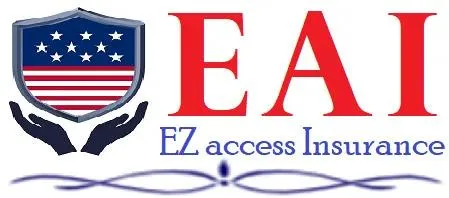HEALTH INSURANCE 101
Understanding Health Insurance: A Beginner's Guide
Health insurance is a vital tool that helps cover your medical expenses, from doctor visits to hospital stays and prescription medications. It's essential to choose the right health insurance plan that suits your needs and fits your budget. Though the plethora of options might initially seem overwhelming, we're here to simplify the process for you and shed light on the important aspects of health insurance for individual New Jersey.
Whether you're exploring employer-provided plans or seeking coverage independently, this guide will assist you in making an informed decision. By the end of this guide, you'll have a clear understanding of how health insurance operates and how to manage your expenses effectively.
Are you residing in a city like Boca Raton and in search of affordable health insurance? Perhaps you're looking to cut down your medical costs in areas like Port St. Lucie or Greenacres? Reach out to us at (561) 420-0280 or visit our website to learn more. We're dedicated to helping individuals in Palm Beach County and throughout the Treasure Coast obtain the healthcare coverage they deserve.

Key Concepts in Health Insurance
To comprehend health insurance, it's crucial to familiarize yourself with a few key terms:
Copayment: This is a fixed fee you pay for certain services, like doctor visits, urgent care, or prescriptions, as outlined in your plan.
Coinsurance: This refers to the percentage of medical costs you share with your insurance company after meeting your deductible. For instance, you might pay 25% while the insurer covers 75%.
Deductible: The amount you must pay out of pocket for covered services before your insurance starts sharing the costs.
Premium: This is the annual amount you pay to your health insurance company to maintain coverage and access the benefits outlined in your plan.
Navigating Insurance Plans
Understanding different types of insurance plans is essential. Here are some common ones:
HMO (Health Maintenance Organization): Requires you to choose a primary care physician and get referrals to see specialists within a specific network. Typically, HMOs have lower copays and deductibles.
PPO (Preferred Provider Organization): Offers more flexibility in choosing healthcare providers and specialists without requiring referrals. However, costs may be higher compared to HMOs.
HSA (Health Savings Account) and HRA (Health Reimbursement Arrangement): Both allow you to set aside pre-tax money to cover medical expenses. An HRA is often funded solely by the employer, while an HSA allows contributions from both you and your employer, and you can carry the funds with you even if you change jobs.
Now that you have a grasp of health insurance medicare supplement Pennsylvania basics, don't hesitate to seek guidance. Our certified agents are ready to assist you. We'll tailor our approach to your unique healthcare needs and find a plan that fits your financial requirements. Contact us at Absolute Best Insurance, serving Greenacres, Port St. Lucie, and Boca Raton, at (561) 420-0280 or click here to connect with us.






